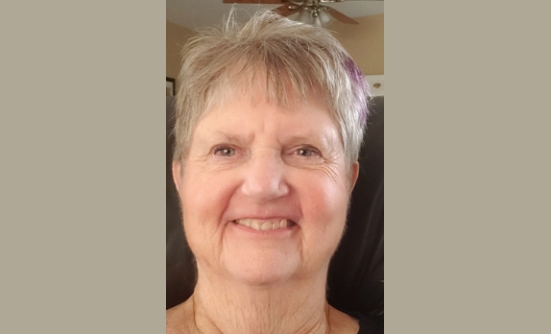In patients with newly diagnosed multiple myeloma, the use of the 3-drug combination of Kyprolis (carfilzomib), Revlimid (lenalidomide), and dexamethasone for first-line therapy does not improve outcomes compared with the 3-drug combination of Velcade (bortezomib), lenalidomide, and dexamethasone, which is the current standard of care for this patient population.
This conclusion is based on data from the phase 3 clinical trial ENDURANCE that were presented at the 2020 ASCO annual meeting by Shaji K. Kumar, MD, of the Division of Hematology at the Mayo Clinic in Rochester, Minnesota.
According to Dr. Kumar, the time without disease progression with the carfilzomib-based 3-drug regimen was comparable to the time with the current standard-of-care 3-drug combination with bortezomib, lenalidomide, and dexamethasone.
Although the regimen with carfilzomib was associated with a higher rate of patients who had very good partial responses to the treatment, indicating a better depth of the cancer’s response to treatment, that regimen also had more cardiopulmonary and renal (kidney) side effects. And the researchers found no difference in the overall survival between the 2 groups based on these follow-up data.
“Based on these data, the combination of bortezomib, lenalidomide, and dexamethasone should remain the standard of care for initial therapy of newly diagnosed symptomatic multiple myeloma,” said Dr. Kumar. “Bortezomib, lenalidomide, and dexamethasone should also be considered the backbone for adding new drugs, such as monoclonal antibodies, in the development of normal regimens for multiple myeloma induction [initial] therapy.”
According to Dr. Kumar, the initial therapy of multiple myeloma has changed dramatically over the last decade, with the FDA approval of several new drugs and drug combinations. Currently, the combination of the proteasome inhibitor bortezomib, the immunomodulatory drug lenalidomide, and the corticosteroid dexamethasone is considered the standard of care as first-line treatment for patients with newly diagnosed multiple myeloma with active symptoms of the disease.
Carfilzomib is a newer-generation proteasome inhibitor compared with bortezomib; in a different phase 3 clinical trial carfilzomib was shown to be more effective than bortezomib, a first-generation proteasome inhibitor, in patients with relapsed (returned) multiple myeloma.
In the ENDURANCE study that was reported at the ASCO meeting, the researchers investigated whether replacing bortezomib with carfilzomib in the 3-drug combination would improve the effectiveness of initial therapy for patients with multiple myeloma who do not plan on immediately having a stem-cell transplant.
Comparable Survival, Increased Side Effects
In the ENDURANCE study, the average time without cancer progression was 34.4 months with the bortezomib combination compared with 34.6 months with the carfilzomib-based combination.
Analysis of specific groups of patients showed comparable time without disease progression in most of the study groups, although there was a trend toward improved time without disease progression with carfilzomib in the 3-drug combination in patients with cytogenetics (chromosome abnormalities).
By contrast, in patients aged 70 years or older, the average time without disease progression was 37 months with the bortezomib-based 3-drug regimen and only 28 months with the carfilzomib-based 3-drug regimen.
“Almost 85% of patients achieved a partial response or better across the study, and the overall response rate was comparable between the bortezomib, lenalidomide, and dexamethasone, and the carfilzomib, lenalidomide, and dexamethasone group,” said Dr. Kumar.
“However, when you look at the deeper responses, a significantly higher proportion of patients in the carfilzomib, lenalidomide, and dexamethasone arm achieved a very good partial response or better compared with patients in the bortezomib, lenalidomide, and dexamethasone arm,” he added.
At an average follow-up of 29 months, the overall survival was identical between the bortezomib, lenalidomide, and dexamethasone group and the carfilzomib, lenalidomide, and dexamethasone group, with each reaching about 85% survival.
Side Effects
However, the data also revealed differences in treatment-related side effects. There were significantly more serious (grade 3 or 4) nonhematologic side effects with the carfilzomib, lenalidomide, and dexamethasone group than with the bortezomib, lenalidomide, and dexamethasone group.
Specifically, dyspnea, hypertension, heart failure, and acute kidney injury were more common in the carfilzomib, lenalidomide, and dexamethasone group, whereas neurological side effects and peripheral neuropathy (numbness of hands and feet) were significantly more common in patients receiving bortezomib, lenalidomide, and dexamethasone.
Serious (grade 3 or 4) cardiac, pulmonary, and renal side effects were also significantly higher in patients who received carfilzomib, lenalidomide, and dexamethasone than in the patients who received bortezomib, lenalidomide, and dexamethasone, Dr. Kumar reported.
Jesús G. Berdeja, MD, Director, Multiple Myeloma Research, Sarah Cannon Research Institute, Nashville, Tennessee, said that based on these study results, bortezomib, lenalidomide, and dexamethasone and carfilzomib, lenalidomide, and dexamethasone are equivalent options for the front-line treatment of patients with newly diagnosed multiple myeloma who do not have high-risk features.
“Comorbidities and toxicity profiles should guide the choice between the 2 regimens in any individual patient,” said Dr. Berdeja. “For example, patients with renal insufficiency should favor the bortezomib group, while patients with baseline peripheral neuropathy should consider treatment with the carfilzomib triplet.”
“It’s also worth noting that bortezomib, lenalidomide, and dexamethasone is less costly than carfilzomib, lenalidomide, and dexamethasone, and it remains an excellent backbone for continued evaluation of additional agents,” Dr. Berdeja concluded.














